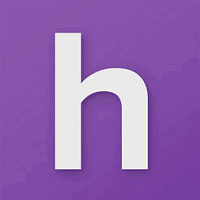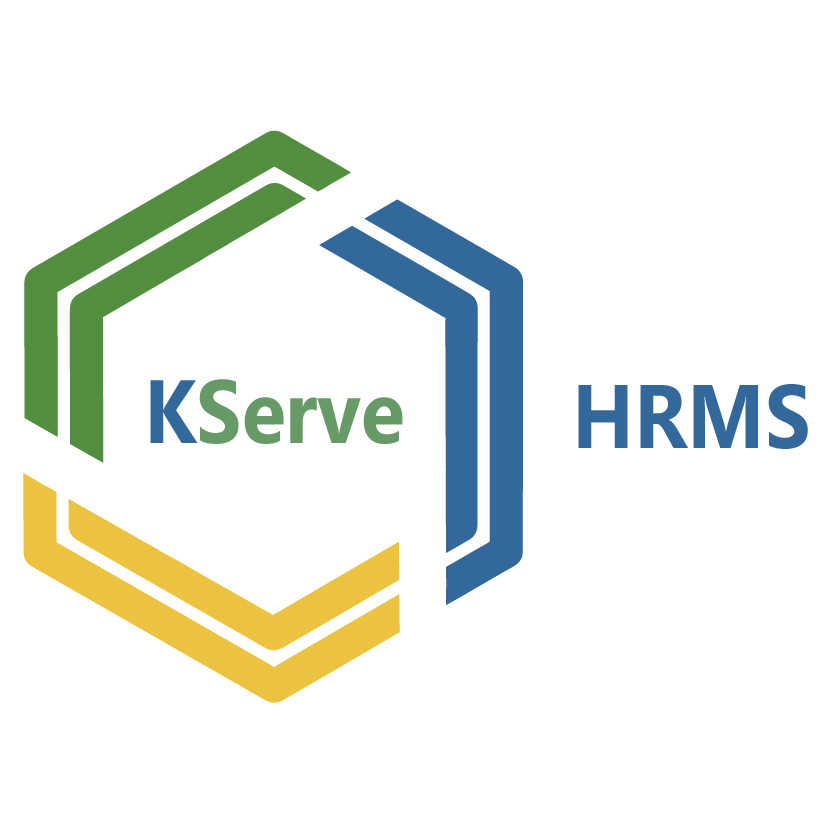Description

Croner

Homebase
Comprehensive Overview: Croner vs Homebase
Croner and Homebase are both companies that provide business support services, but they focus on different areas and cater to distinct market needs.
Croner
a) Primary Functions and Target Markets: Croner specializes in providing HR, employment law, and health & safety services. Their offerings include legal advice, HR software, compliance management, and training services. Croner targets primarily small to medium-sized enterprises (SMEs) that may not have the resources to manage complex HR and compliance activities in-house. Their services are relevant across various sectors including education, manufacturing, hospitality, and retail.
b) Market Share and User Base: Croner is quite established in the UK market, primarily serving the SME sector. While specific market share details are not always disclosed, Croner's longstanding presence and affiliation with large organizations like Wolters Kluwer bolster its reputation and reach. Their client base spans thousands of businesses, particularly those looking for outsourced HR solutions.
c) Key Differentiating Factors:
- Expertise in compliance and legal advice, especially regarding UK employment law.
- Comprehensive HR and H&S management tools tailored for UK regulations.
- Longevity and reputation in the industry, providing peace of mind to clients who need reliable compliance support.
Homebase
a) Primary Functions and Target Markets: Homebase is a workforce management platform that provides tools for employee scheduling, time tracking, hiring, onboarding, and team communication. Homebase primarily targets small businesses, particularly in sectors such as retail, food & beverage, and hospitality where shift work is common.
b) Market Share and User Base: Homebase has a significant presence in the U.S. SMB (small to medium-sized business) market, particularly in the restaurant and retail industries. The platform has been widely adopted due to its user-friendly interface and cost-effective solutions. While its market share data is also proprietary, the accessibility and affordability of its tools have made Homebase a popular choice for many small businesses across North America.
c) Key Differentiating Factors:
- Focus on scheduling and time management tools designed for the retail and hospitality industries.
- Accessible pricing with a freemium model that allows small businesses to start with basic features at no cost.
- User-friendly interface that simplifies workforce management for business owners without dedicated HR staff.
Comparison:
-
Target Market:
- Croner targets SMEs in need of compliance and HR services, mainly in the UK.
- Homebase caters to small businesses in the U.S. that require streamlined workforce management.
-
Functionality:
- Croner offers HR, legal, and compliance services.
- Homebase provides scheduling, time tracking, and team communication tools.
-
Geographical Focus:
- Croner is focused on the UK market.
- Homebase primarily serves the North American market.
-
Pricing Model:
- Croner typically has a subscription model with customized pricing based on the scope of services.
- Homebase offers a freemium model with the option to upgrade for more features.
In summary, Croner and Homebase serve different needs and markets with Croner focusing on compliance and legal HR services in the UK, and Homebase providing workforce management tools to the North American SMB sector. Their market positioning and offerings reflect these distinct strategic focuses.
Contact Info

Year founded :
1941
Not Available
Not Available
United Kingdom
Not Available

Year founded :
1986
Not Available
Not Available
United States
Not Available
Feature Similarity Breakdown: Croner, Homebase
As of my last update in October 2023, I can provide a general comparison, but please note that specific feature details may vary as these products are continuously updated and enhanced. Here’s a feature similarity breakdown for Croner and Homebase:
a) Core Features in Common:
-
Employee Scheduling:
- Both platforms offer tools for creating and managing employee schedules, allowing managers to easily allocate shifts based on employee availability and business needs.
-
Time Tracking:
- Users can clock in and out digitally, facilitating accurate time tracking. This helps businesses in managing labor costs, payroll processing, and compliance.
-
Payroll Management:
- Both solutions integrate with payroll systems to streamline the calculation and distribution of employee payments based on tracked hours.
-
Compliance Assistance:
- They provide resources and alerts to help businesses stay compliant with labor laws, such as ensuring maximum work hours are not exceeded and breaks are taken.
-
Reporting and Analytics:
- Generate reports on labor costs, attendance, and other workforce metrics to help with decision-making and strategic planning.
b) User Interface Comparison:
-
Croner:
- Often designed with a professional and functional layout focusing on HR and compliance features.
- Typically includes detailed dashboards with customizable metrics that cater to larger enterprises and those focused on HR compliance.
-
Homebase:
- Known for its user-friendly and intuitive interface, making it accessible for small to medium-sized businesses.
- Features a clean design with easy navigation, often integrating seamlessly with POS systems and offering mobile app capabilities for both managers and employees.
c) Unique Features:
-
Croner:
- HR Advisory Services: Unlike many purely software-based solutions, Croner offers HR consultancy services, providing businesses with direct access to human resource experts for advice on complex issues and compliance.
- Specialized Compliance Tools: Particularly strong in offering tools tailored for industry-specific legal compliance and risk management beyond basic scheduling and payroll.
-
Homebase:
- Free Scheduling Software: Known for offering a free tier, especially appealing to small businesses that need basic scheduling without the additional costs.
- Team Communication Tools: Features built-in messaging and communication tools that support team collaboration, allowing for direct communication about shift changes and announcements.
- All-in-One App: Includes components for hiring, onboarding, and team performance, creating a comprehensive platform allowing businesses to manage multiple HR aspects from a single place.
Both solutions cater to businesses looking to optimize workforce management, but their distinct features and interfaces make them suitable for different business sizes and needs. Croner tends to focus more on compliance and HR advisory, while Homebase is tailored for simplicity and ease of use, especially for smaller organizations.
Features

Compliance and Legal
Employee Benefits
Salary Insights

Team Communication
Employee Management
Time Tracking and Timesheets
Payroll Management
Easy Employee Scheduling
Best Fit Use Cases: Croner, Homebase
When evaluating Croner and Homebase, it's important to consider their distinct functionalities and the environments in which they excel. Here’s a breakdown of their best-fit use cases:
Croner
Croner primarily offers human resources (HR), employment law, health & safety services, and is known for providing comprehensive support to businesses in managing these areas.
a) Best Fit Use Cases for Croner:
- Medium to Large Enterprises: Companies with more complex HR and legal requirements benefit from Croner's extensive expertise and resources.
- Industries with Strict Compliance Needs: Businesses in sectors like healthcare, construction, and manufacturing, where compliance with safety and employment regulations is critical, can leverage Croner for expert guidance.
- Global or Multi-Location Corporations: Organizations with international or multi-site operations requiring consistent HR and legal policies across locations.
- HR and Legal Support: Projects that require substantial legal support for issues like employee disputes, tribunal representation, or health and safety audits.
Homebase
Homebase focuses on workforce management, offering tools for scheduling, time tracking, hiring, and team communication, primarily targeting small businesses.
b) Preferred Scenarios for Homebase:
- Small to Medium-Sized Businesses (SMBs): It's ideal for restaurants, retail stores, healthcare clinics, and local service providers that need affordable, straightforward workforce management solutions.
- Hourly Workforce Management: Perfect for businesses that employ shift workers and need to manage schedules, time clocks, and payroll preparation efficiently.
- Businesses with High Employee Turnover: Industries with temporary or seasonal staff can utilize Homebase for its hiring and onboarding functionalities, streamlining new personnel management.
- Simplified Scheduling Needs: Companies looking for intuitive and user-friendly scheduling and communication platforms.
How They Cater to Different Industry Verticals or Company Sizes:
Croner:
- Industry Vertical Adaptability: Croner provides tailored solutions for industries with specific legal mandates, offering sector-specific insights and documentation.
- Large-Scale Resources: With robust HR and legal support services, Croner can cater to large corporations with complex HR structures that require detailed consultancy and representation.
Homebase:
- Simplicity and Affordability: It serves small businesses across various sectors by offering cost-effective and easy-to-use tools that can be essential for operations with limited administrative staff.
- Scalability for SMBs: Homebase caters primarily to smaller businesses but can scale up to support growing businesses that continue to rely on hourly workers and straightforward scheduling.
In summary, Croner is suited for larger enterprises with complex HR/legal needs, while Homebase excels as a solution for small to medium-sized businesses requiring efficient and cost-effective workforce management tools.
Pricing

Pricing Not Available

Pricing Not Available
Metrics History
Metrics History
Comparing undefined across companies
Conclusion & Final Verdict: Croner vs Homebase
To provide a conclusion and final verdict for Croner and Homebase, I would need to understand the context in which these products are being compared, as well as the specific features, pricing, target audience, and any other relevant factors. However, based on general principles, I can offer a structured approach to evaluating these types of products:
Conclusion and Final Verdict
a) Best Overall Value
- Best Overall Value: The best overall value between Croner and Homebase depends on the specific needs of your organization. If your primary focus is on comprehensive HR solutions, including compliance and advisory services, Croner might provide better value. On the other hand, if you're focused on efficient scheduling, time tracking, and team communication, Homebase may offer a more cost-effective solution.
b) Pros and Cons
-
Croner
- Pros:
- Comprehensive HR and compliance solutions.
- Expertise in legal advisory and risk management.
- Extensive resources for employee management and development.
- Cons:
- Potentially higher costs due to the breadth of services.
- May be more than what small businesses need if only basic HR features are required.
- Pros:
-
Homebase
- Pros:
- User-friendly interface for scheduling and time tracking.
- Affordable pricing, with essential features available for free.
- Great for small to medium-sized businesses focusing on daily operations.
- Cons:
- Limited in-depth HR compliance features compared to Croner.
- May require integration with other software for a full HR suite.
- Pros:
c) Specific Recommendations
-
For Users Seeking Comprehensive HR Solutions: If your organization requires robust HR support, including legal compliance, employee management, and advisory services, Croner is likely the better choice. This is particularly true for larger businesses or those in highly regulated industries.
-
For Users Focused on Scheduling and Team Management: Homebase excels in providing tools for employee scheduling, time tracking, and team communication. It is an ideal choice for small businesses that prioritize operational efficiency and do not need extensive HR compliance services.
-
General Recommendations:
- Evaluate your organization's primary needs and compare them against the core offerings of each platform.
- Consider the scale of your business and whether you anticipate needing more comprehensive HR solutions in the future.
- Take advantage of free trials or demos to explore the user interface and feature set of each platform.
Ultimately, the choice between Croner and Homebase should be driven by your organization's specific requirements, budget constraints, and future growth plans.
Add to compare
Add similar companies



